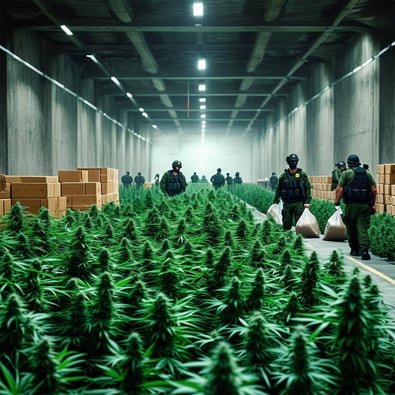In border communities like Hurley, Wisconsin, the debate over Kratom Marijuana is more than just a legal question—it’s a public safety concern. While Michigan allows both kratom sales and recreational marijuana use, crossing just a few miles into Wisconsin turns these substances into illegal products, creating unique challenges for law enforcement and public health officials.
Kratom, a plant native to Southeast Asia, is widely available in Michigan convenience stores, gas stations, and smoke shops. It’s often sold as capsules, drinks, or powders with flashy packaging. While marketed as natural, experts warn it can be highly addictive, with effects similar to opioids. In small doses, kratom may provide a burst of energy, but overdosing has been linked to psychosis and extreme delusions. The Iron County Sheriff’s Office has even seen individuals suffer symptoms lasting up to 48 hours.
At the same time, marijuana, which has been legal in Michigan since 2018, poses its own risks when transported across the border. Dispensaries in nearby Ironwood are thriving, but Hurley police frequently seize marijuana during traffic stops. The biggest concern, according to officials, is underage use. Teenagers experimenting with THC vape pens are particularly worrisome, as these products can impair learning and increase the likelihood of long-term dependency. This intersection of Kratom Marijuana issues underscores the complexity of substance regulation across state lines.
Melissa Geach, the health officer for the Iron County Health Department, emphasized parental awareness. “It’s easily available just across the border as it’s legal there,” she explained, warning that both kratom and marijuana being so accessible increases the risk of misuse, particularly among youth.
Chief Deputy Mike Randall echoed these concerns, recalling instances where individuals under the influence of Kratom Marijuana experienced severe delusions, such as believing parts of their bodies were falling off.
The inconsistency in state laws only adds to the problem. While Michigan has embraced cannabis legalization and left kratom largely unregulated, Wisconsin classifies both Kratom Marijuana as Schedule 1 controlled substances. This classification means they are considered to have a high potential for abuse with no accepted medical use, putting them in the same category as heroin under state law.
For communities like Hurley, the challenges of Kratom Marijuana are unlikely to disappear soon. As long as differing state laws exist, law enforcement and health officials will continue to face the consequences of cross-border availability. Parents, educators, and policymakers must work together to raise awareness and develop strategies to minimize the risks for youth and the wider community.





